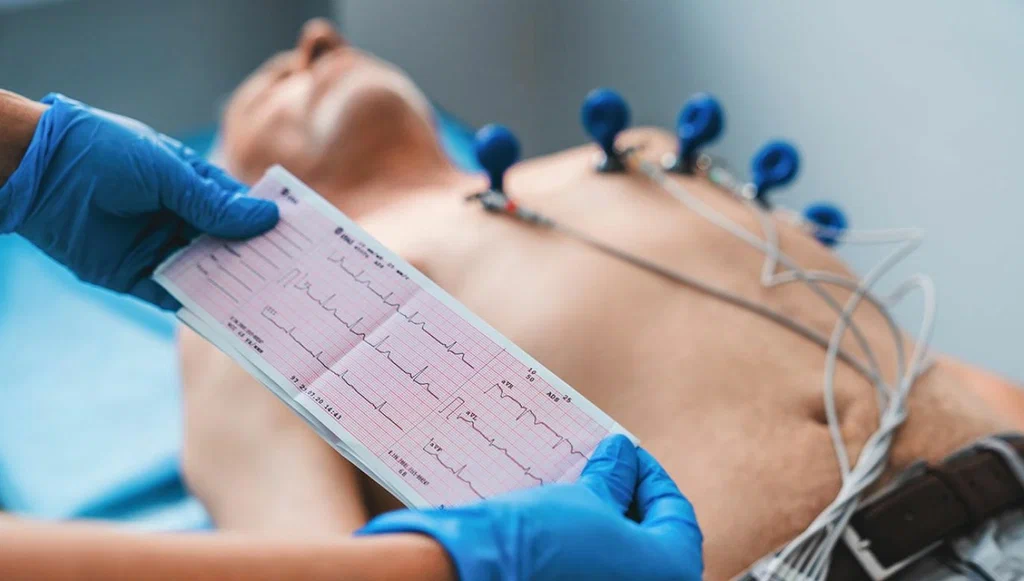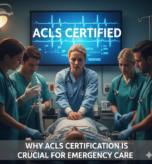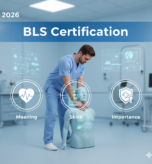In the fast-paced world of healthcare, accurate diagnosis and quick response can save lives. One of the most vital diagnostic tools in modern medicine is the Electrocardiogram (ECG)—a test that monitors heart rhythm and identifies cardiac abnormalities. For nurses and medical staff, gaining proficiency through an ECG certification for nurses is more than a professional advantage—it’s a life-saving skill.
Enrolling in an ECG technician certification program empowers healthcare professionals to accurately interpret heart rhythms, detect cardiac issues early, and assist physicians in emergency situations. Whether you’re a practicing nurse, paramedic, or healthcare student, understanding the ECG training course benefits can help you elevate your career and improve patient outcomes.
What Is an ECG Certification Course?
An ECG certification course is a specialized training program designed to equip nurses, technicians, and other healthcare professionals with the knowledge and practical skills required to perform and interpret ECGs effectively.
During the course, participants learn how to:
- Operate ECG machines
- Identify cardiac rhythms and arrhythmias
- Recognize abnormalities in heart rate and rhythm
- Assist in emergency cardiac care situations
This certification is ideal for those working in intensive care units (ICU), emergency departments, cardiology clinics, or ambulatory care centers.
Why ECG Certification Matters for Nurses and Medical Staff
In today’s healthcare systems, nurses are often the first responders during cardiac distress. The ability to perform and interpret an ECG is not just a technical skill—it’s a crucial competency that enhances your professional credibility and patient care capabilities.
Let’s explore the top benefits of ECG training courses for nurses and medical professionals.
1. Enhanced Diagnostic Skills
One of the biggest ECG training course benefits is the ability to detect heart abnormalities promptly. With training, nurses can identify dangerous cardiac rhythms such as atrial fibrillation, ventricular tachycardia, or heart blocks before they become life-threatening.
This proactive capability helps doctors make faster decisions and significantly improves patient outcomes.
2. Career Advancement Opportunities
Completing an ECG certification for nurses boosts your professional profile and expands your career opportunities. Healthcare institutions often prefer or require certified professionals for specialized departments such as:
- Cardiology units
- Emergency rooms
- Intensive care wards
- Cardiac rehabilitation centers
Holding an ECG technician certification program credential can also lead to promotions, salary increases, or leadership roles in patient monitoring and cardiac care.

3. Builds Confidence in Clinical Practice
Performing ECGs can be intimidating for new healthcare workers. Through hands-on ECG certification training, you gain practical experience that builds confidence in operating medical equipment, reading ECG results, and responding to cardiac emergencies efficiently.
Confidence in interpreting heart rhythms enables nurses to communicate findings more effectively with physicians and respond calmly under pressure.
4. Globally Recognized Certification
One of the most practical advantages of pursuing an ECG technician certification program is its global recognition. Many international healthcare facilities—including those in the UAE, UK, and USA—accept ECG certifications issued by accredited institutions.
This opens doors to global employment, allowing you to explore career opportunities in different countries or high-standard hospitals worldwide.
5. Improved Patient Care and Safety
Accurate ECG interpretation helps in early diagnosis of cardiac issues, leading to faster interventions. Certified nurses play a vital role in monitoring patients’ heart rhythms, detecting anomalies, and ensuring timely medical attention.
This leads to better patient outcomes and increased trust from both doctors and patients.
6. Competitive Advantage in Job Market
The healthcare field is highly competitive, and having additional qualifications such as an ECG certification for nurses sets you apart from other candidates. Employers value staff who possess advanced clinical skills, making you an indispensable asset in any healthcare setting.
Many hospitals and clinics also list ECG training as a preferred or mandatory qualification for certain roles, giving certified professionals a hiring edge.
7. Foundation for Advanced Medical Specializations
An ECG certification serves as a strong foundation for those who wish to specialize in cardiology or pursue higher education in critical care nursing, cardiac monitoring, or medical technology.
It’s an essential steppingstone for advanced certifications such as:
- Advanced Cardiovascular Life Support (ACLS)
- Basic Life Support (BLS)
- Critical Care Nursing Programs
8. Hands-On Learning and Real-World Scenarios
High-quality Certification courses for ECG offer practical sessions where nurses and trainees get to work with real ECG machines and analyze authentic cardiac cases. This hands-on exposure helps bridge the gap between theory and practice, ensuring that learners are fully equipped for clinical situations.
Through simulated cardiac events, you’ll learn how to react swiftly, make accurate observations, and collaborate effectively with medical teams.
9. Increased Earning Potential
Healthcare organizations are willing to pay more for professionals with specialized training. Completing an ECG technician certification program enhances your earning potential and opens up higher-paying opportunities in cardiac monitoring units, emergency care, or private clinics.
This certification is also valuable for nurses seeking international positions where advanced cardiac monitoring skills are in high demand.
10. Lifelong Learning and Professional Growth
Medicine is a constantly evolving field. By enrolling in Certification courses for ECG, you’re committing to continuous learning. The certification must often be renewed periodically, ensuring you stay up-to-date with the latest cardiac technologies and protocols.
This dedication to ongoing education reflects your commitment to professional excellence and patient safety.
Who Should Take an ECG Certification Course?
This course is ideal for:
- Registered Nurses (RNs) and Licensed Practical Nurses (LPNs)
- Paramedics and Emergency Medical Technicians (EMTs)
- Cardiology and critical care staff
- Healthcare students aspiring to specialize in cardiology
Whether you’re a new graduate or an experienced healthcare professional, ECG certification will enhance your expertise and broaden your career horizons.
How to Choose the Right ECG Certification Program
When selecting an ECG technician certification program, look for:
- Accreditation from recognized medical training bodies
- Experienced instructors with real-world expertise
- A curriculum combining theory and hands-on training
- Opportunities for clinical practice in hospitals or labs
- Flexible schedules for working professionals
Choosing a reputable institution ensures your certification is recognized globally and meets professional standards.
Conclusion
Taking an ECG certification for nurses is more than just earning a credential—it’s about improving patient care, advancing your career, and building confidence in your clinical practice.
With numerous ECG training course benefits, this program offers both immediate and long-term rewards for healthcare professionals committed to excellence. From enhancing diagnostic accuracy to boosting employability and global opportunities, ECG certification stands out as one of the most impactful career investments you can make in healthcare



